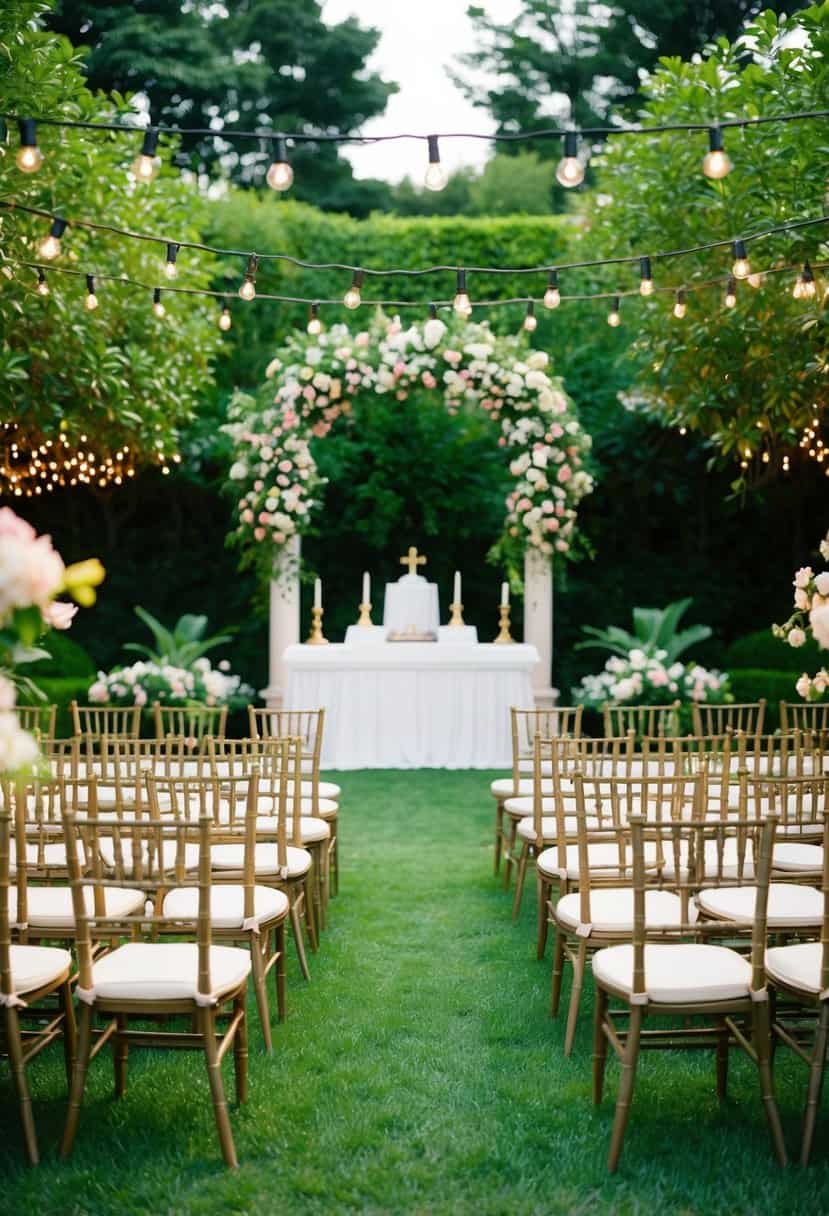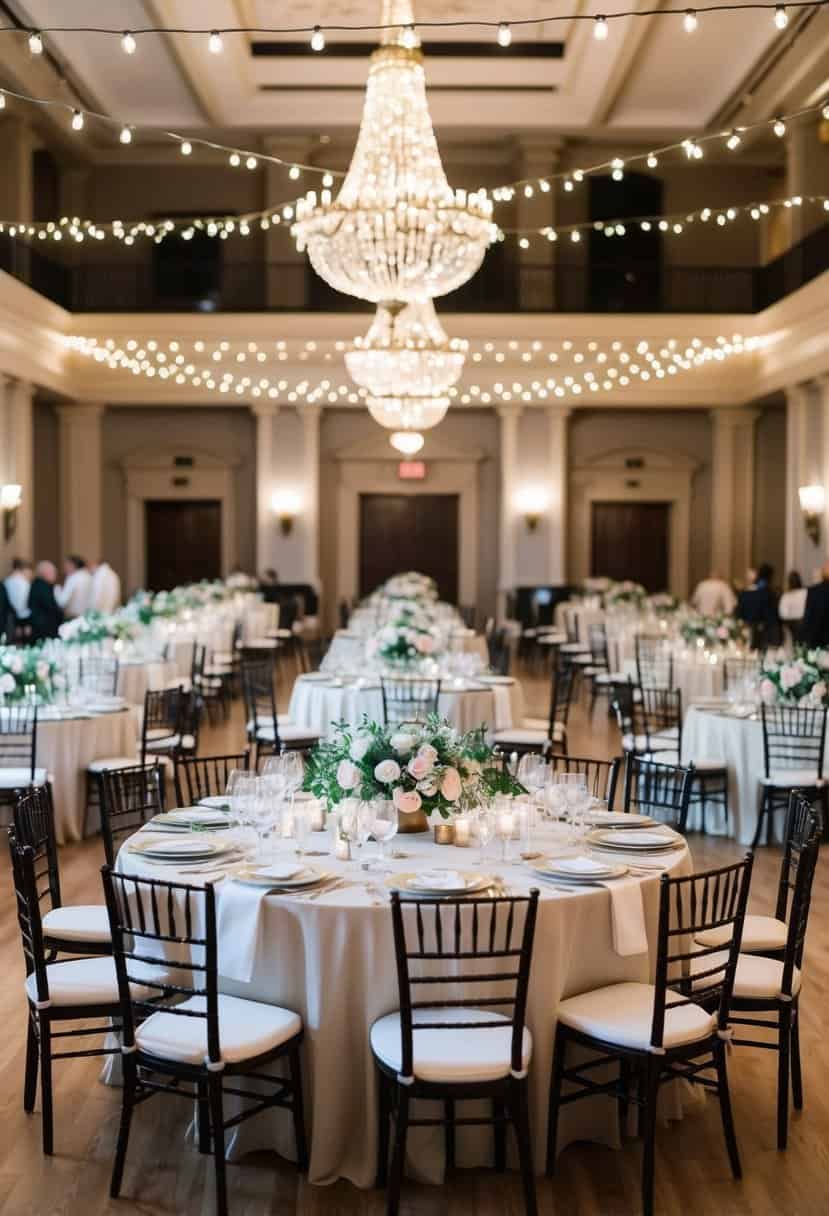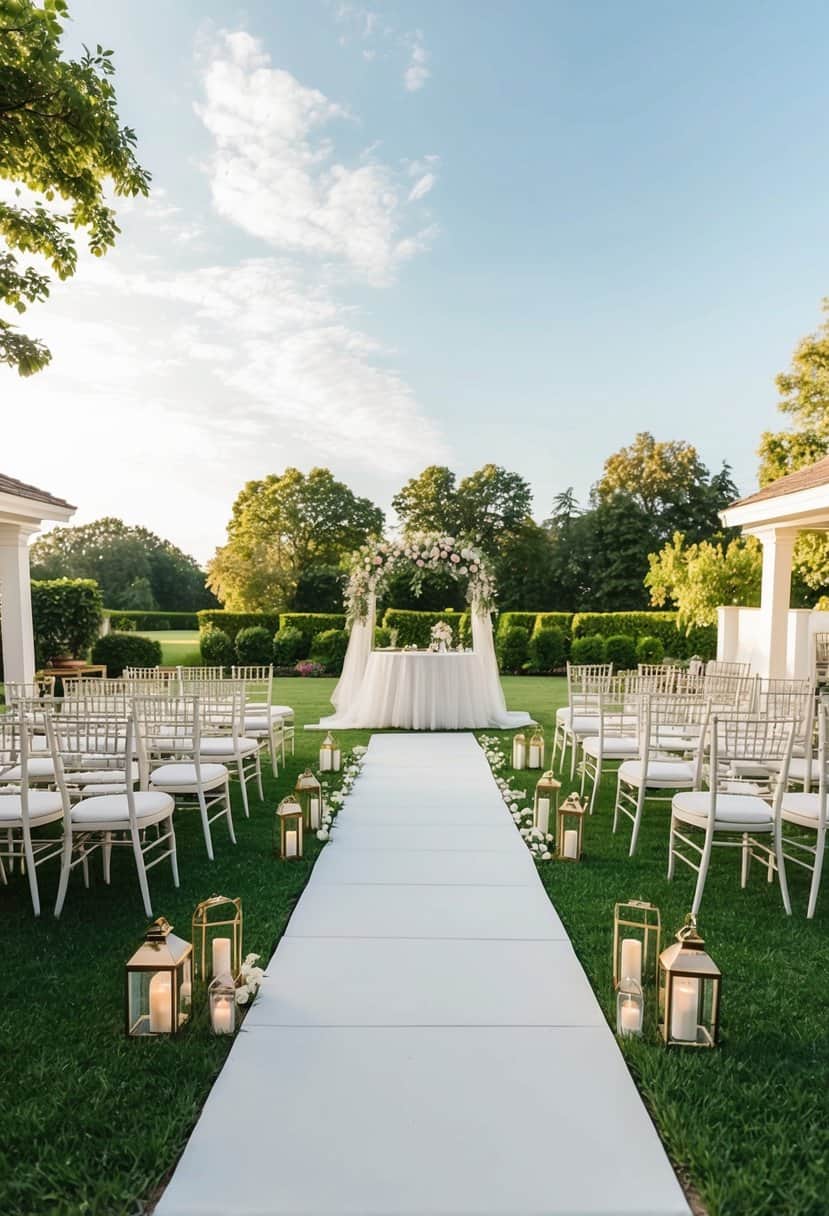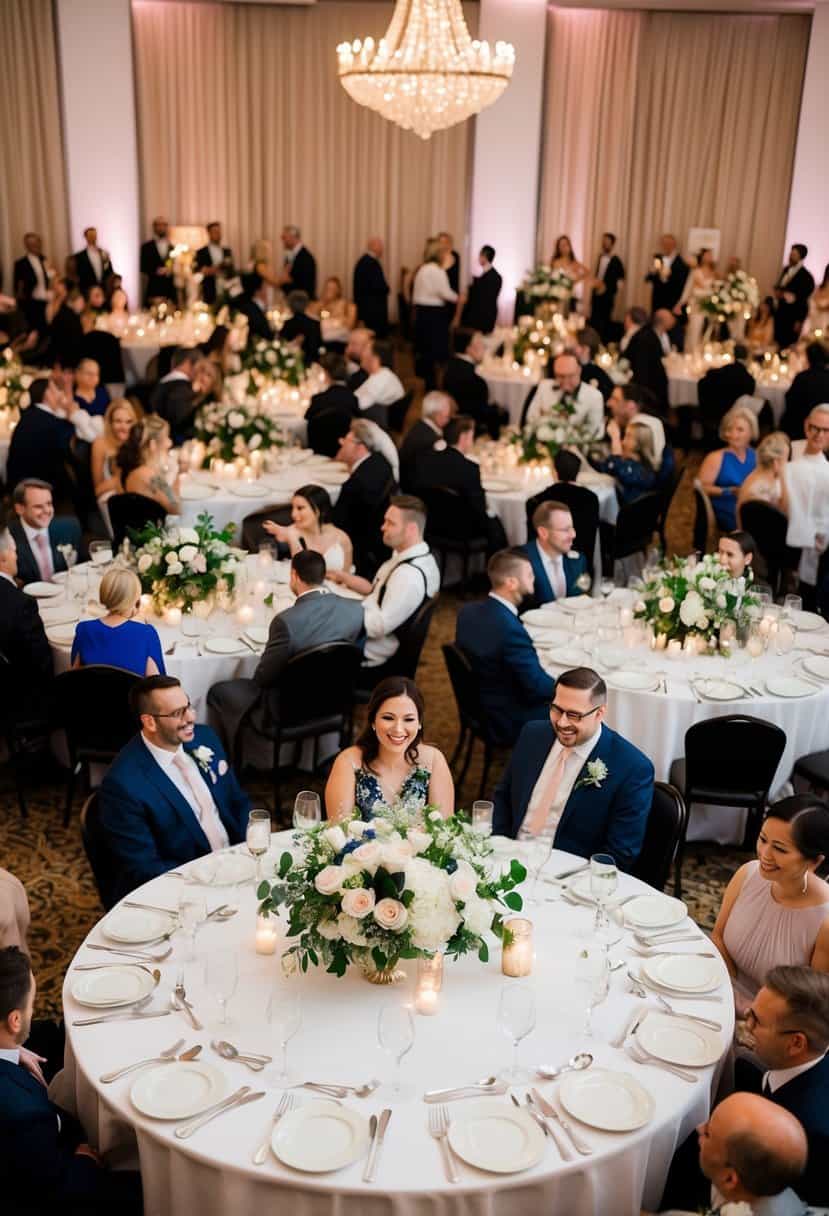Is 100 People a Good Amount for a Wedding? Find the Perfect Balance
Planning a wedding can be both exciting and a bit overwhelming. One of the first big decisions is figuring out the guest list. You might wonder, is 100 people a good number for a wedding? Inviting 100 people strikes a perfect balance between an intimate gathering and a lively celebration.

With roughly 100 guests, you have a chance to spend quality time with your nearest and dearest, without feeling overwhelmed by a massive crowd. This size can also help manage the budget, while still providing a vibrant atmosphere.
Whether you’re aiming for a cozy ceremony or a lively party, 100 attendees can offer the best of both worlds.
By choosing this guest count, you’re likely to have enough space to include important family members, friends, and maybe even colleagues. This number can be seen as the sweet spot for many couples. Ready to dive deeper into what makes this amount just right? Keep reading to explore more about why 100 guests might be perfect for your special day!
Determining Your Wedding Size

Choosing the right wedding size can involve balancing personal preferences with logistical realities. Think about the type of atmosphere you want and what fits your budget and venue.
Below, we explore what defines different wedding sizes and what to consider when making your guest list decisions.
Understanding Different Wedding Sizes
Weddings can vary greatly in size, from a micro wedding with just a handful of close friends and family, to a large celebration with hundreds of guests.
A small wedding typically includes 50 guests or fewer, making it cozy and intimate. Medium weddings might have between 50 and 150 attendees, striking a balance between personal and social.
A large wedding often involves 150 guests or more, which can be great for a big celebration if you have a large venue and budget.
Understanding these categories can help you visualize your big day better and see where different numbers can lead you in terms of atmosphere and logistics. Your choice might hinge on factors like budget, personal comfort, and venue size.
Guest List Considerations
Creating your guest list requires thoughtfulness about who to include. Begin by listing must-have attendees like close family and friends.
From there, consider the capacity of your venue and the cost per guest. Think about what type of wedding you envision—is it a big wedding or a more intimate affair?
Be mindful of relationships and how your choices might affect family dynamics.
It’s also wise to think about people’s travel arrangements if you’re planning a destination wedding or have international guests. This step is crucial for making sure both you and your guests feel comfortable and valued on your wedding day.
Budgeting for Your Wedding

Planning your wedding involves managing various costs to ensure everything fits within your budget. Understanding the main components and how to allocate funds effectively is essential.
Cost of Wedding Components
When you’re planning for 100 guests, knowing the cost of each element helps keep your wedding budget on track.
Important components include the venue, attire, food, and entertainment. The average cost of a wedding can vary, but many key areas tend to take up large portions of your budget.
For example, the ceremony and reception often constitute the largest expenses. In 2023, couples spent about $35,000 on average for these, which includes costs like venue rental, catering, and decor.
For attire, you might want to allocate approximately 7% of your budget for your wedding dress, suits, and accessories.
Allocating Your Budget
Once you know the costs, it’s time to allocate your budget wisely. Start by listing your priorities.
If photography and music are essential for you, consider directing more funds towards these aspects. If saving money is important, consider DIY elements like creating your own playlist instead of hiring a DJ.
Consider these typical allocations:
- Venue and Catering: 50-60%
- Attire: 7-10%
- Photography/Videography: 10-15%
Keep track of all these expenses to stay within your limits. By focusing on areas that hold the most value to you, your day will be both enjoyable and financially manageable.
Choosing Your Venue

Selecting the perfect wedding venue involves considering guest numbers, the location of your celebration, and the style of venue that best fits your vision. Each of these aspects plays a crucial role in making your wedding day both memorable and seamless.
Venue Capacity Matching Guest Count
When planning a wedding for around 100 guests, venue capacity is a key consideration.
Venues often have a listed maximum capacity; however, comfort should also be a priority. A venue that accommodates exactly 100 might feel cramped, especially if it includes a dance floor or buffet area.
Look for venues that can comfortably hold 120 to 150 guests. This provides extra space for movement and additional features like photo booths or lounging areas.
Be sure to discuss your guest list with venue coordinators. They can provide insights on how to best organize seating and other elements to maximize space.
Local versus Destination Weddings
Deciding between a local or destination wedding impacts your venue choice significantly.
Local weddings usually offer more familiarity and may reduce travel expenses for guests. If most guests are from nearby, this can be a more convenient option for everyone involved.
Destination weddings allow you to explore exotic locations, but they often involve more logistics and may limit your guest list.
Consider whether you want a destination wedding as a unique experience or to keep it simple with a local venue. Think about travel accessibility and accommodation options for your guests to ensure everyone can join in the celebration.
Venue Types for Different Wedding Sizes
The type of venue you choose can greatly affect the ambiance of your wedding. For a 100-person wedding, options range from elegant banquet halls to more intimate garden venues. Each type has its own charm and benefits based on your wedding theme and size.
Banquet halls offer a formal setting with ample space for dining and dancing. Garden venues provide a natural backdrop that can enhance a rustic or outdoor theme.
Consider the season as well; indoor venues might be better for winter weddings, while gardens are ideal for spring or summer. Look into venue types that align with your vision and the experience you want to provide for your guests.
Planning Your Guest List

Organizing a wedding involves crucial decisions like choosing the number of guests. It’s essential to handle RSVPs promptly and consider both local and out-of-town guests. Each step plays a vital role in making your day memorable.
Deciding on the Number of Invited Guests
When planning your wedding, think about how many people you want to invite. This decision depends on your budget and venue. Some couples prefer intimate gatherings, while others opt for larger celebrations.
Learn about average wedding sizes to help make your decision. For example, small weddings usually have 50 or fewer attendees, while medium ones see between 50 and 150 guests. Large weddings often have over 150 guests. Knowing these categories can help you plan better.
Consider who you want to share your day with. Talk to your partner and family to get their opinions. Balancing the numbers with your finances will lead to a smoother planning process. Use resources like the average guest list size to guide you.
Managing RSVPs and Confirmations
Keeping track of RSVPs is crucial to ensure a seamless event. Ask your guests to respond by a specific date. This lets you finalize numbers and make necessary preparations.
Send out invitations with clear RSVP instructions. Offering both mail and digital response options can increase convenience for your guests. Make sure to follow up with anyone who hasn’t responded as the deadline approaches.
Tracking RSVPs can be simplified with tools like spreadsheets or event planning software. Mark who has confirmed attendance and who hasn’t. By managing this process effectively, you’re less likely to face last-minute surprises, helping maintain a stress-free planning period.
Including Local and Out-of-town Guests
Including both local and out-of-town guests requires planning. For local guests, accessible venue locations and convenient event timing are important.
Out-of-town guests may need accommodations and directions to nearby attractions. Providing hotel recommendations and transportation options helps make their stay enjoyable.
Keep in mind the rsvp challenges they may face.
Coordinate any pre-wedding events like welcome dinners or brunches. This shows appreciation and helps everyone feel more involved. Consider creating a brief welcome packet with maps and suggested activities to enhance their experience.
Finalizing Wedding Details

When getting ready for your big day, you’ll need to plan out important steps like sending out save the dates, choosing a wedding cake, and working with wedding planners. These steps make sure your wedding goes smoothly and is as memorable as you imagined.
Sending Save the Dates and Invitations
Sending your save the dates and invitations is crucial. Start by sending save the dates about 6 to 12 months in advance. This helps guests mark their calendars early. Make sure to include essential details like the date and location.
Your wedding invitations should go out about 6 to 8 weeks before the wedding. Include all the necessary information, such as RSVP details, dress code, and directions to the venue.
A well-organized invitation can set the tone for your wedding and let your guests know what to expect.
Selecting Your Wedding Cake
The wedding cake is a centerpiece for many receptions. You should start exploring cake designs and flavors early, ideally 3 to 6 months before the wedding. Schedule tastings with local bakeries to find the perfect flavor.
Consider the size of your guest list when choosing the cake. For a wedding with 100 guests, ensure your cake is appropriately sized. Think about the cake’s design to match your wedding theme. Simple details like color and decorations can make a big impact.
Coordinating with Wedding Planners
Working with a wedding planner can make the entire process easier. A planner helps coordinate various aspects of your wedding day, from venue setup to managing timelines. They ensure that everything runs smoothly, allowing you to enjoy your day stress-free.
Keep in regular contact with your planner. Provide updates on guest counts, special requests, and budget limits. This helps them make informed decisions on your behalf. Remember, having a reliable planner can make your wedding day as effortless and enjoyable as possible.




